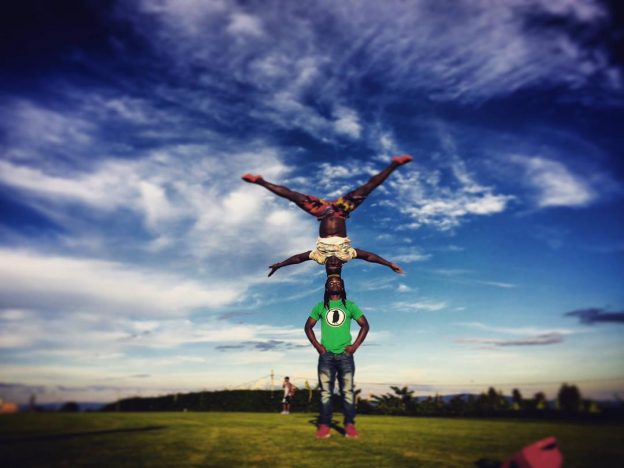Jonathan Irakiza from Rwanda in East Africa tells us of his extraordinary journey, rising from childhood poverty and deprivation to a brave new life performing professionally with Rwandan Acrobats, teaching, and running his own social circus company, the Young Circus Performers Company
Let me introduce myself. I’m Jonathan Irakiza, an artist, circus performer and trainer, and also the managing director of the Young Circus Performers Company in Rwanda. The company was founded in 2017 , but by then we had already established ourselves as the Rwandan Acrobats group. In 2017 we decided to professionalise the company.
This company consists of six professional artist-performers who are also teachers and trainers. These artists have been working together for more than 17 years, with very many activities to our name. We have organised and performed in many different events; participated in many different festivals; and organised tours, workshops, projects and other events. We even took part in the TV show East Africa’s Got Talent! Now, we have reached the point where we want to start organising our own festivals and other events.
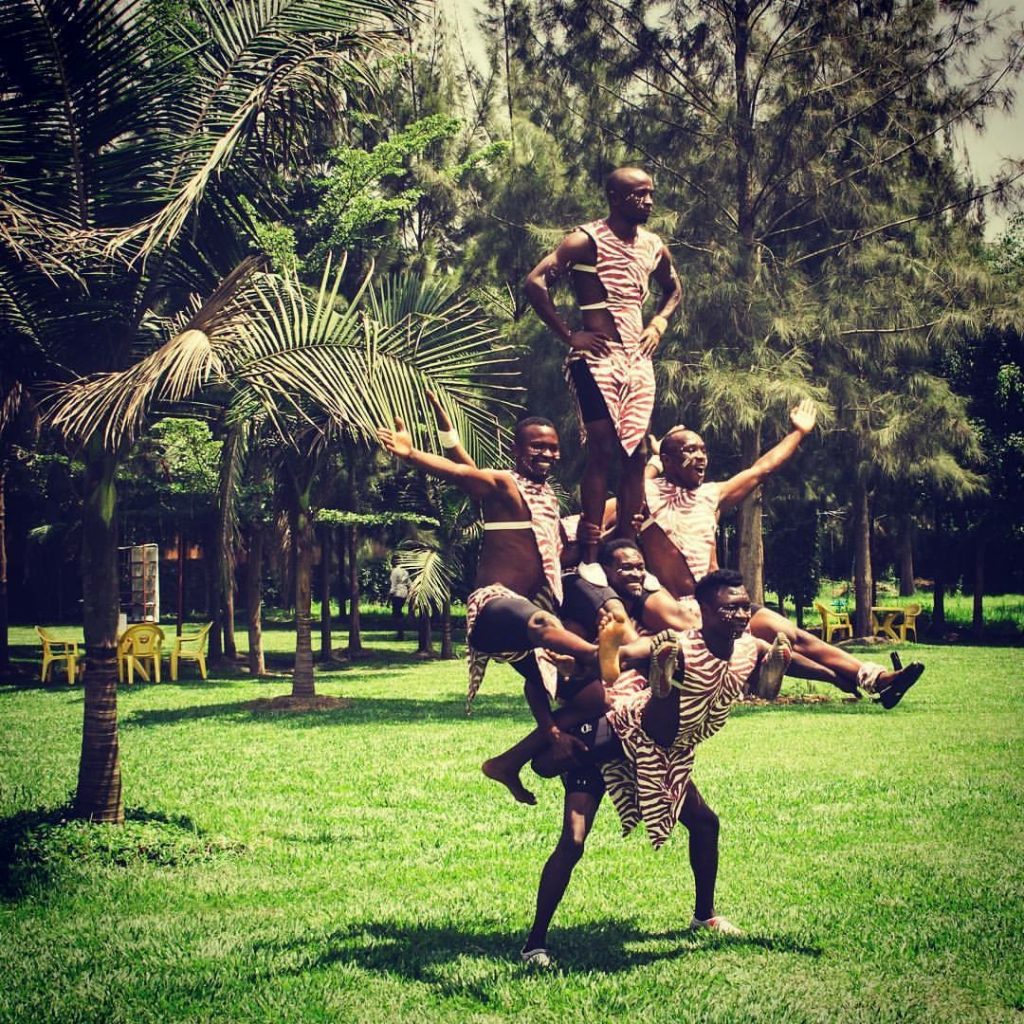
My own personal journey as an artist started in 1997. But it has not been an easy journey to this point…
I was born in Gisenyi town in Rwanda, near the border of Rwanda and Congo. I was born into the poorest of families, and when growing up, my father didn’t have a job, and my mother was the one who was taking care of us and everything else; and sometimes it was not easy to get food and other basic necessities. But somehow we kept living even though life was hard, and I started thinking of what I could do to change my life.
One day I went to visit my friend to watch TV (because at home there was no TV) and there I saw people doing gymnastics. I immediately felt interested and wanted to try things out. I saw a video of someone doing back handsprings, and the next day during the school break-time I went behind the class where nobody could see me and tried to teach myself a back handspring. Inevitably, I had a small accident trying to do this – but I just pulled my knees in to my chest and spent a few seconds on the ground without breathing as there was nobody there to help me.
When I felt better I went back home, and my parents didn’t know what had happened. I was very scared but I didn’t give up because after two days of recovery, I continued teaching myself. After a few days trying to train alone, I got some information about a centre where they taught gymnastics, acrobatics and circus. The very next day I went to that centre just to check what’s happening there, and asked them if they could let me join the group. They didn’t let me in, but I kept going back after school just to see them practising what they do, and kept showing them that I really wanted to join. After two weeks, they asked me to show them what I could do, and they allowed me to join the team. I was very happy and I promised the trainer that I would try my best to learn as fast as possible. Then, I started to train and to practise with others, but it became a big problem for me because even though I was allowed to join, I started thinking of what would happen at home when they knew I had joined the team.
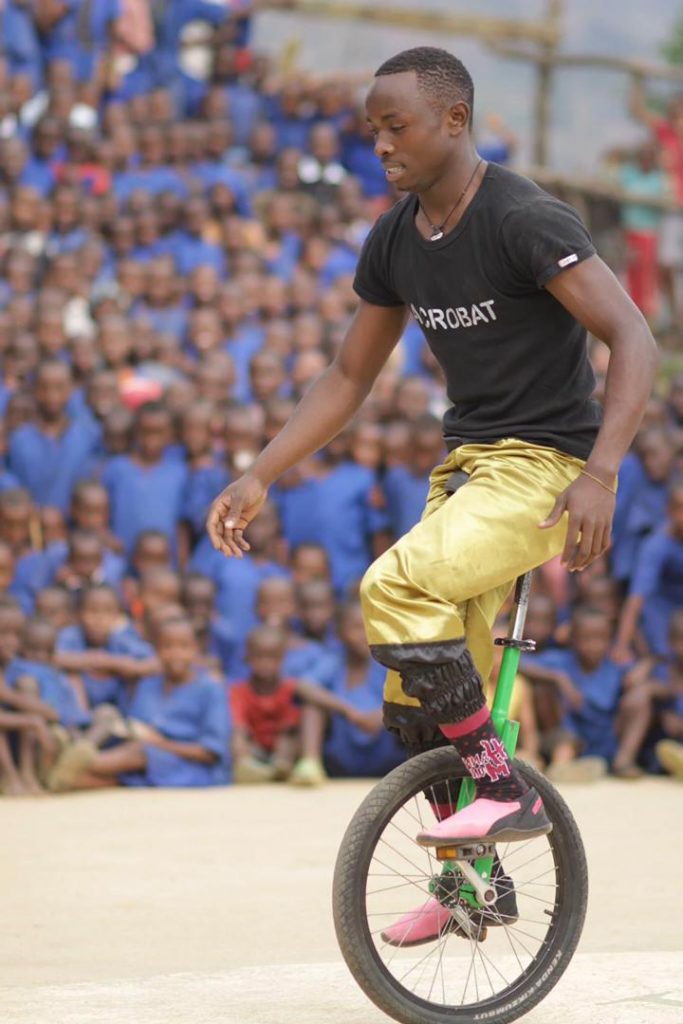
Finally at home they found out that I had joined an acrobatics team because I used to go there after school and come home late. I had many hard beatings from my mother who was convinced that I was going to start using drugs, or to live on the streets and learn bad behaviour.
After a while, I found a hula hoop and started to play with it, and when the trainer saw me, he told me that I had a talent for it, and said that if I kept practising, I could join them for performances, using the hoop.
So then came the day when, for the first time, they took me to the stadium where there was a government event, and I went there with them to help with costumes and equipment. Even though I was not on the list of performers, I was very happy to be there.
A while later, the group got invited out of the city and I was selected to be on the performers list, and I was so very surprised and happy to be chosen I forgot for the moment that my mother didn’t like what I was doing. When I got back home, I told her what I had been doing, and got beaten immediately – very hard – but I didn’t give up, I kept to my chosen path.
After a while, I passed the primary school national examination with good results and was sent to study in a boarding school. My mother accompanied me from home to school, which took three hours by bus. But when I arrived at the school, I found it very hard. I was not happy at all. I didn’t want to stay there, but wanted to go back at home so that I could continue my circus training.
I tried to tell my mother that I didn’t want to be there but she did her best to convince me of how important it was to take this opportunity, and promised that she would visit three or four times every month. So I accepted that I needed to stay in this boarding school, even though it was not easy for me to start a new life. I missed home and my friends and I once even tried to escape! But after a few months I made new friends, and together we created a school acrobatic team and started practising together. We became popular in school and got known in the local community as well over the next three years.
I had another national examination and did well, but really didn’t want to stay in boarding school, so I went back to my home town and I was very happy to be back and to re-meet my old friends. We started to train together and to perform acrobatics and circus.
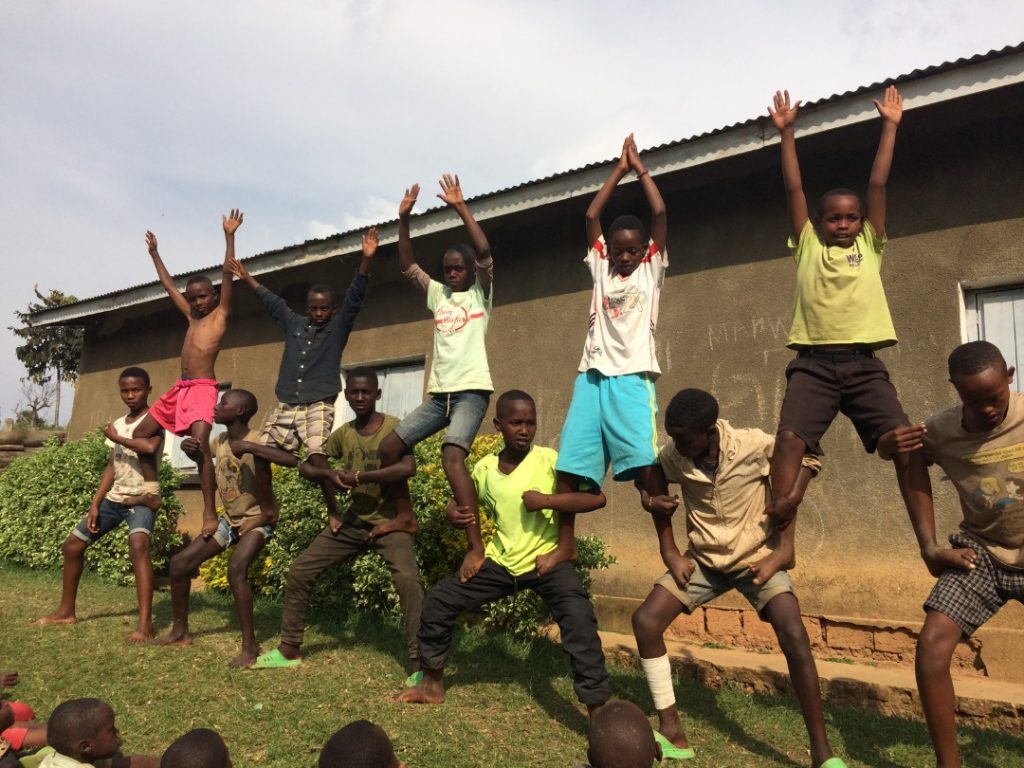
A year later, my mother passed away – and she was the one who was taking care of us in every way. I took a decision immediately to do my circus work in a professional way, even though it was not easy at that time. I decided to create a circus team working out of the centre, and we started to practise together and create new routines for the performances. We decided that we would just go to perform even where we weren’t invited – just go there to ask if we can perform and hope that perhaps they’d give us a little money, but our main target was to show people what we were capable of doing.
In doing all of those things we had the intention of changing our life and also instigating change for others who also lived in bad life situations – because all of us had different backgrounds. Some of us were living on the streets, some (like me) were orphans, and many were from the poorest families. We kept practising and after training, we’d sit down and share ideas (and sometimes food!). We decided that everything we did would be collective: not just one person’s work, everything made as a teamwork; and everyone has to participate in everything. That’s how we started organising tours to orphanage centres, refugee camps, disability centres, youth centres; performing and doing workshops, and after all activities, delivering talks, sharing stories and memories, and showing them that we were all fighting very hard to change our lives. In our teaching and performing, we were using gymnastics/acrobatics (tumbling), unicycle, different kind of juggling (hats, clubs, rings, balls), bottle balancing, diabolo, and human pyramids.
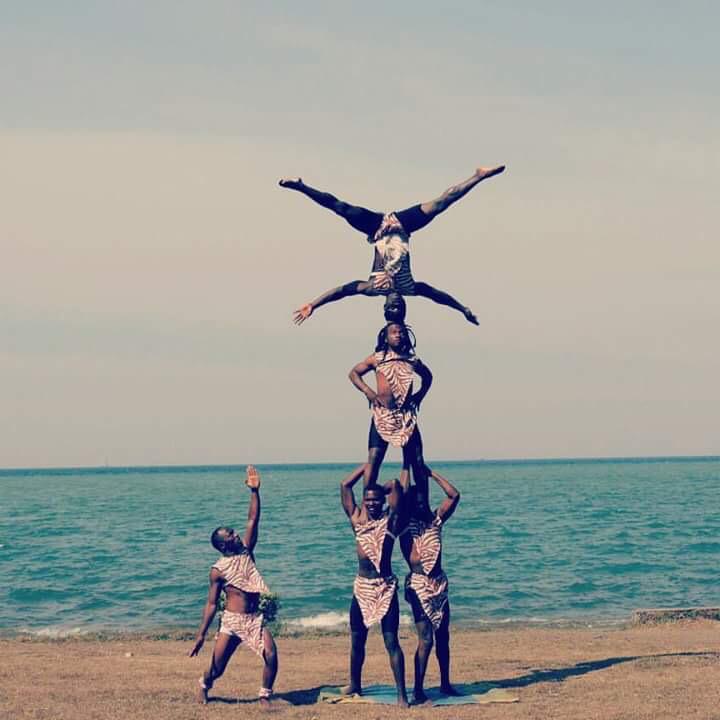
We performed at many big events, including the Miss Rwanda competition, Rwanda National Liberation Day, Heroes Day and more. We organised tours in five different refugee camps in Rwanda (with Clowns Without Borders from Sweden), and organised children’s holiday camps that included sessions in acrobatics and other circus skills, painting, dancing, handicrafts, drumming, and more.
The creation and delivery of all those activities helped us to meet with different people; and through this work we created partnerships and friendships. It also gave us the opportunity to participate in different training and workshops; and a wonderful opportunity arose when we got invited to participate in an international training camp in Sweden organised by Clowns Without Borders. In sessions led by great instructors from different universities and other institutions, we learned vital skills that helped us in our daily and professional lives, including:
Leadership – leading oneself, leading others ,understanding others and their needs, understanding cultural differences
Pedagogical skills – circus arts, teaching ,facilitation
Organisational skills – building an organisation and administrative skills
After training, we had the opportunity to perform in a Stockholm street theatre festival in front of big audiences, and it was something huge for us as it was our first performance in Europe. We really enjoyed our show and the director of the festival asked to come back the next day and we ended up collaborating with an artist from the United States who had liked our show and asked us to perform with him – he was playing drums using found objects such as plastic buckets, and the show we co-created was really amazing: when we left the stage many people didn’t want us to leave but we had to leave that very day to get back home, going directly from the show to the airport.
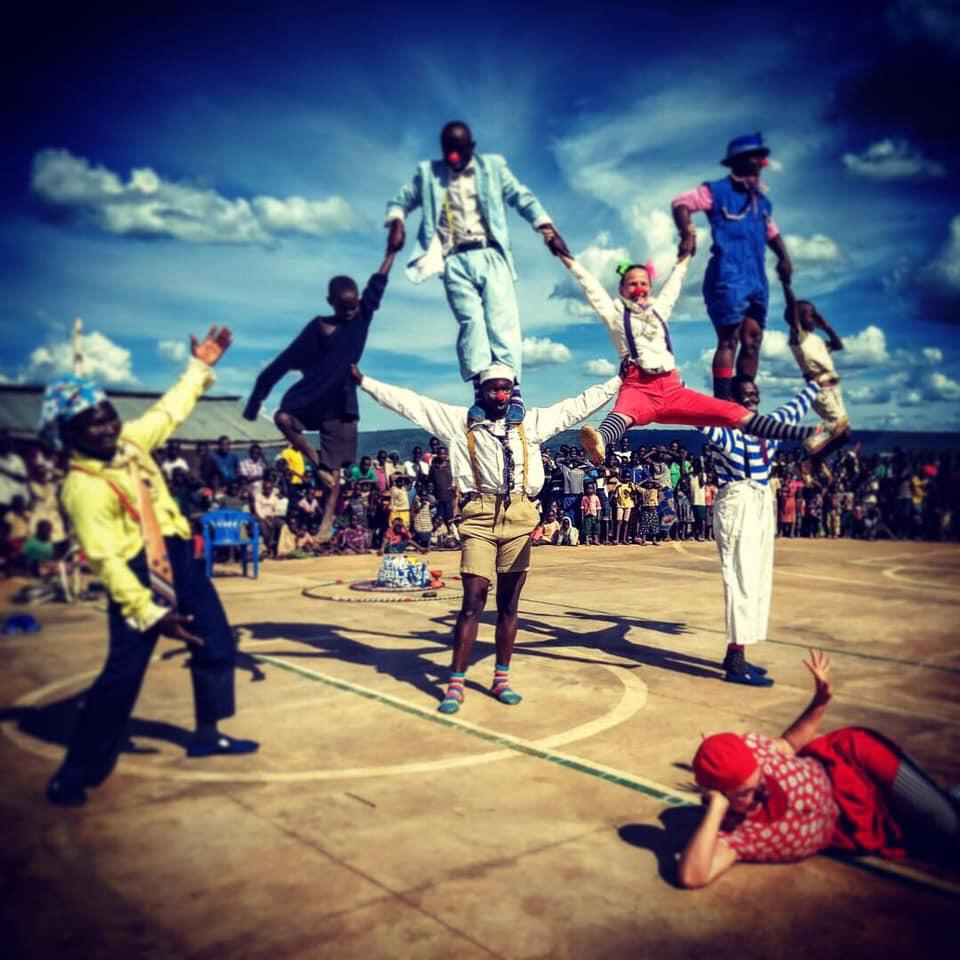
Our circus group kept working together, and yet I was still studying in secondary school. I kept working with my friends and paying my school fees from circus shows. Once I’d finished school, I got a driving license and took care of other duties at home.
In all of these circus achievements, there is both professional pride and personal development – because circus protected me, healed me, changed me, and made my dreams come true. It helped me to meet with different people, and to visit different places – even to travel to other countries. As time went by, the team became well-known locally and nationally.
But despite the success of all these things, I sometimes feel sad because the person who beat me thinking that it’s not good for me is not alive to see that success. It is sad that my mother will never know this – but what makes me feel strong is that I can see that tomorrow will be much better than today.
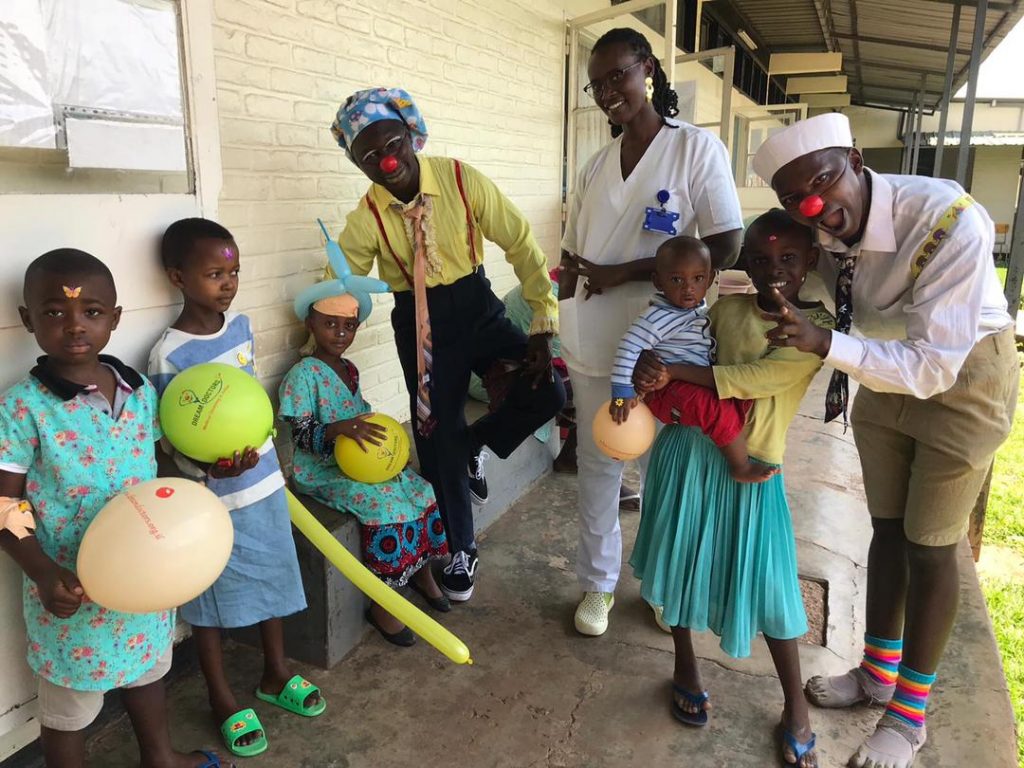
I like circus so much because it is an artform that really brings people together; a place where people work together, despite their personal differences. And also because circus is for everyone. As audience, everyone can appreciate professional circus performance. But more than that: social circus is not only a form of leisure for children, young people and adults, but also a tool to give socially vulnerable people some positive reinforcement. Social circus has obvious effects on the wellbeing of its participants as it naturally promotes social interaction – because it brings the participants together and offers the group something to do together.
Circus is inspiring and it brings joy. It creates the opportunity to have a good time with the other participants. But crucially, social circus allows failure without embarrassment or punishment, because in circus everyone inevitably makes mistakes from time to time. We ensure that the practice has a relaxed atmosphere and produces the experience of being accepted. It takes place in a relaxed atmosphere in which everyone is accepted, and repeated practice increases the opportunities to learn; and learning brings success. This is how social circus becomes a ‘virtuous circle’.
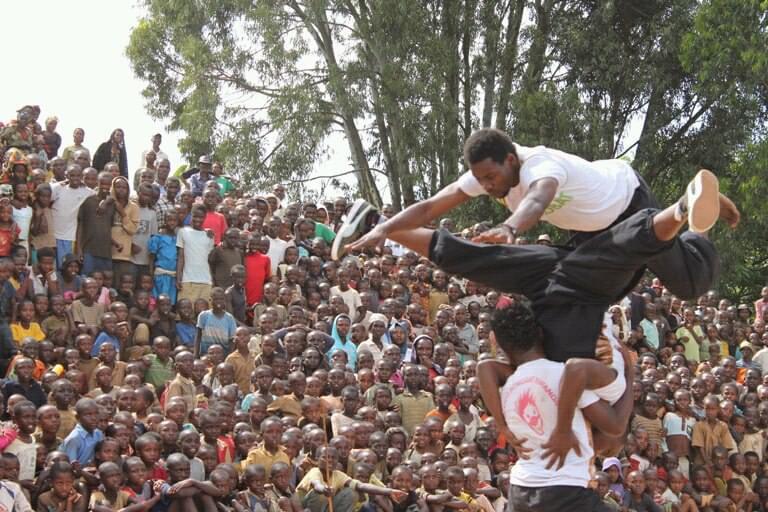
The dream of the team is to one day to have our own centre where there will be different activities for people who live in hard life situations. We want to move forward into organising festivals; and to have our own circus tent for performances in Rwanda.
In our circus arts centre, we would like to have different activities: to create a space which could be used for training and workshops; to create a room where people can meet and share stories, backgrounds and ideas; and to have an exhibition room. We aim to work with different partners on this dream.
We envision a golden future for our company, and for our partners.
And we envision an empowered circus arts community in Rwanda and East Africa.
The journey continues…
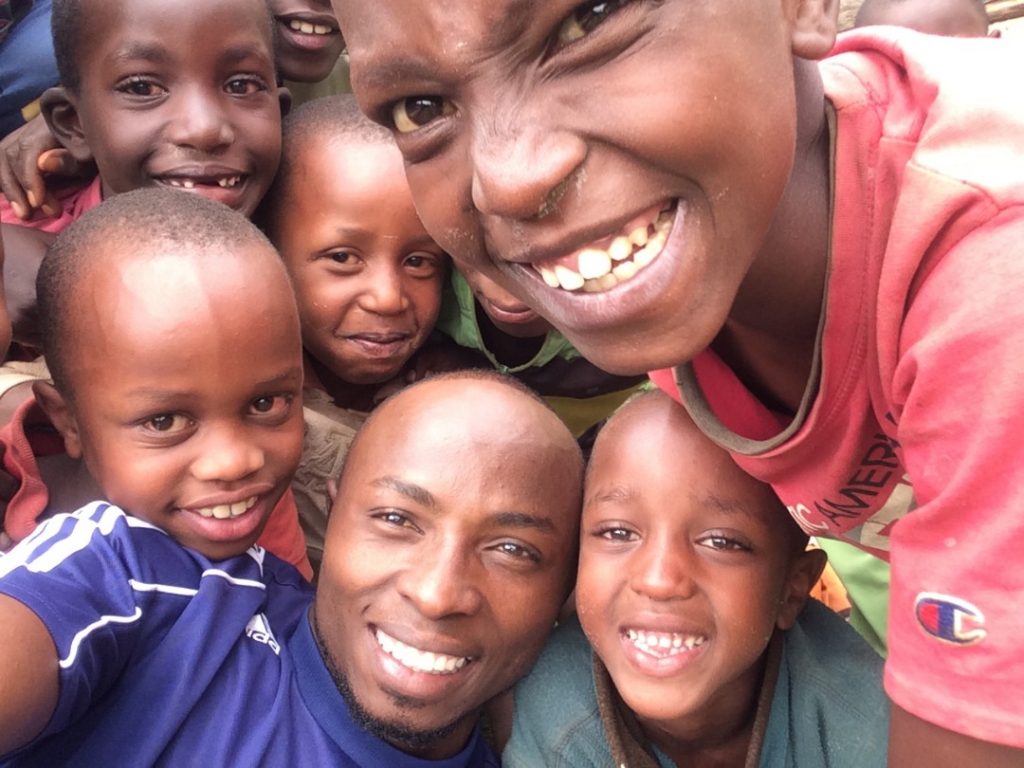
Featured image (top of page): Rwandan Acrobats by Jonathan Irakiza.
Jonathan Irakiza is the founder and managing director of Young Circus Performers company, which is based in Kigali, Rwanda in East Africa. He has worked for 15 years as an artist, circus performer, acrobat, and theatre performer; and as a circus and acrobatics trainer and ‘circus entrepreneur’. He is also a trainer and founder of Rwanda’s artistic cycling project for vulnerable children.
Jonathan Irakiza took part in the Total Theatre Artists as Writers 2021–2022 programme.
Contact Jonathan and the Young Circus Performers company on youngcircusperformers@gmail.com or Rwandan Acrobats on rwacrobats@gmail.com
Telephone/WhatsApp: +250782331061, +250788262523
Instagram: @rwacrobats
twitter: @rwacrobats
facebook: @rwandan acrobats or @youngcircusperformers

